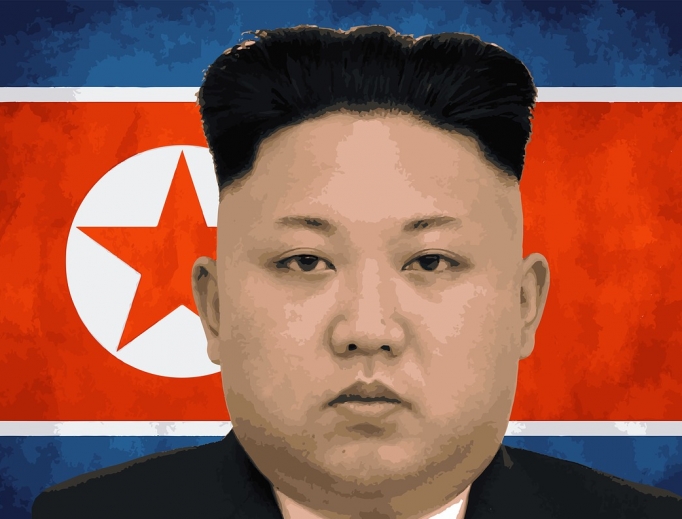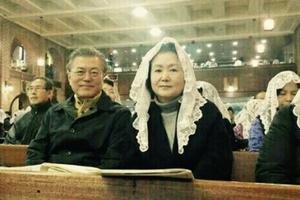Is North Korea Practicing ‘Ping-Pong’ Olympic Diplomacy?
COMMENTARY

South Korea announced Jan. 17 that not only will a delegation from North Korea march with South Korean athletes in the opening ceremonies of the Winter Olympic Games set to begin in Pyeongchang, South Korea, next month under a flag depicting the whole Korean Peninsula, but the two countries will field a single women’s ice hockey team in the games.
The move comes as a result of renewed talks between the two governments following a proposal made by North Korea’s dictator, Kim Jong Un, in his new year’s address.
These developments are quite sudden and raise the question of whether they indicate a general thaw in the standoff between North Korea and the U.S. and its South Korean ally over Kim’s aggressive development of nuclear weapons and ballistic missiles. Just weeks ago, officials expressed concerns that North Korea might actually attempt to sabotage the Pyeongchang games, as they did before the 1988 Summer Olympics in Seoul.
This might be thought of as an example of “Ping-Pong diplomacy,” an allusion to the 1971 visit of the U.S. table tennis team to China, which was a precursor to the talks that led to President Nixon’s pathbreaking visit in 1972. This is unlikely.
Just how fraught the situation has become was indicated when aides to Pope Francis, on the way to his apostolic visit to Chile Jan. 15, gave reporters on the plane a striking gift — a haunting photograph of a Japanese boy carrying the body of his dead brother after the atomic bombing of Nagasaki.
When asked if he was worried about nuclear war, the Pope replied, “I think we are at the very limit. I am really afraid of this. One accident is enough to precipitate things.”
It is difficult to believe that the Holy Father was not thinking of the Korean Peninsula. Just days earlier, Hawaiians were accidently sent an emergency alert that nuclear missiles were inbound, and a similar mix-up occurred days later in Japan.
These dire sentiments and scares come on the heels of an intense period in Korean-U.S. relations. In November, North Korea tested a new and larger intercontinental ballistic missile (ICBM), the Hwasong 15, with a range that could certainly include the West Coast and, depending on the payload, could well include the whole continental United States.
U.S. President Donald Trump and Kim Jong Un exchanged harsh and provocative messages. In early January, The Wall Street Journal reported that the Trump administration is considering a so-called “bloody-nose” strike against North Korea, a limited attack on missile launch sites intended to humiliate Kim and convince him that the U.S. would not hesitate to launch a much larger strike if provoked.
On Jan. 15, The New York Times reported that U.S. war planners are refining their options for a strike even as key elements of the U.S. military are carrying out training exercises that emphasize the kinds of operations that an attack on North Korea would involve.
Meanwhile, the U.S. presently has all three types of its strategic bombers stationed in Guam, including the B-52 and B-2, both of which can deliver nuclear weapons.
However, Kim’s new year’s overture and the seemingly less truculent tone taken by Trump in his January interview with The Wall Street Journal (“I probably have a very good relationship with Kim Jong Un”) have been accompanied by suggestions by Secretary of State Rex Tillerson that there are ongoing back-channel communications with Pyongyang. How, then, should we take the Olympic diplomacy offensive by the North?
“Offensive” may be the right word. The North Koreans have continued to insist that their nuclear program is nonnegotiable, and Mr. Kim set the tone for recent talks with Seoul by saying that his missiles target only the U.S. and not South Korea.
Tellingly, he also said that they would not target Russia or China. This makes the gestures toward good sportsmanship and unity with South Korean look like an attempt to split it from its U.S. ally and also create distance between Washington and the other great powers.
This seems to be the view of the Japanese foreign minister, Taro Kono, quoted in the Jan. 17 Washington Post as saying, “We should not be naïve about their [North Korea’s] intent.”
An indication of U.S. priorities may be seen in the Jan. 16 Vancouver summit organized by the U.S. and Canada, which gathered representatives of 20 countries that provided troops for the U.N. authorized military effort in the Korean War.
While declining invitations to take military options off the table, Secretary of State Tillerson emphasized a tougher regime of economic sanctions. This does seem like the best strategy for moving forward for three reasons.
First, CIA Director Mike Pompeo publicly said in December that, in the opinion of U.S. intelligence agencies, Kim is essentially a rational actor. Brutal as he is, he is not insane. This means that he responds to incentives. His main motive in developing nuclear weapons and ballistic missiles is to guarantee the survival of his regime.
The lessons of recent history support his intransigence: Libyan dictator Muammar Gaddafi gave up his nuclear program and was killed by insurgents supported by the U.S.; Ukraine gave up its nuclear weapons and has been subject to Russian predation, despite international assurances that its borders would be protected as a consequence of its disarmament. Kim will not end his program so long as he views it as essential to his rule and that of the Kim dynasty.
Second, it remains difficult to see how any military action by the U.S. would not cause disproportionate death and destruction to civilians, not only in North Korea, but in South Korea and Japan, too.
It is unlikely that Pyongyang at this moment could successfully follow through on threats to the U.S. mainland, but they certainly have the means to retaliate at devastating cost to U.S. allies in Asia. Moreover, even if Kim is rational, there is always the possibility of miscalculation that leads to escalation.
This is precisely what Pope Francis was so concerned about in his comments en route to Chile. Crucially, traditional just-war doctrine precludes even military action sanctioned by a just cause if it fails to discriminate between combatants and civilians or causes harms that are disproportionate to mitigating the evils that would justify an armed attack.
Finally, the possibility of economic pressure is nowhere near exhausted. Many companies, especially Chinese banks, help to enable Kim’s regime, despite economic sanctions.
In September, Trump extended the authority of the U.S. Treasury Department to pursue those who do business with North Korea, but the administration has been quite slow to go after Chinese businesses that help finance Pyongyang. This may be changing, however: The president underlined the sanctions policy in his Jan. 30 State of the Union address, referring to it as “a campaign of maximum pressure.”
Sen. Cory Gardner, R-Colo., has introduced the “North Korean Enablers Accountability Act,” which would expand sanctions and explicitly target important Chinese companies. If, again, Kim is rational and is convinced that nuclear weapons guarantee the survival of his dictatorship, it is necessary to provide counterincentives. His continued development of weapons and missiles must come to have the effect of making his regime weaker, not stronger.
The full cost of the weapons program must exceed the benefits. Only far tougher economic sanctions that do not punish the people of North Korea, but do make life more and more difficult for Kim and his henchmen, could possibly change his calculus in this way. There may be some positive indications of this in the fact that Pyongyang has scaled back its annual military exercises, very possibly to conserve fuel as a result of sanctions already in place.
This policy, along with stepped-up defensive measures, is the only realistic alternative to military action that would not, at this time, meet the tests of just-war principles but would likely result in the deaths of hundreds of thousands of Koreans, as well as perhaps tens of thousands of Americans, both military and civilian, currently living in South Korea and Japan.
V. Bradley Lewis, Ph.D., is an associate professor of philosophy and a fellow in the Institute for Human Ecology at The Catholic University of America.
















